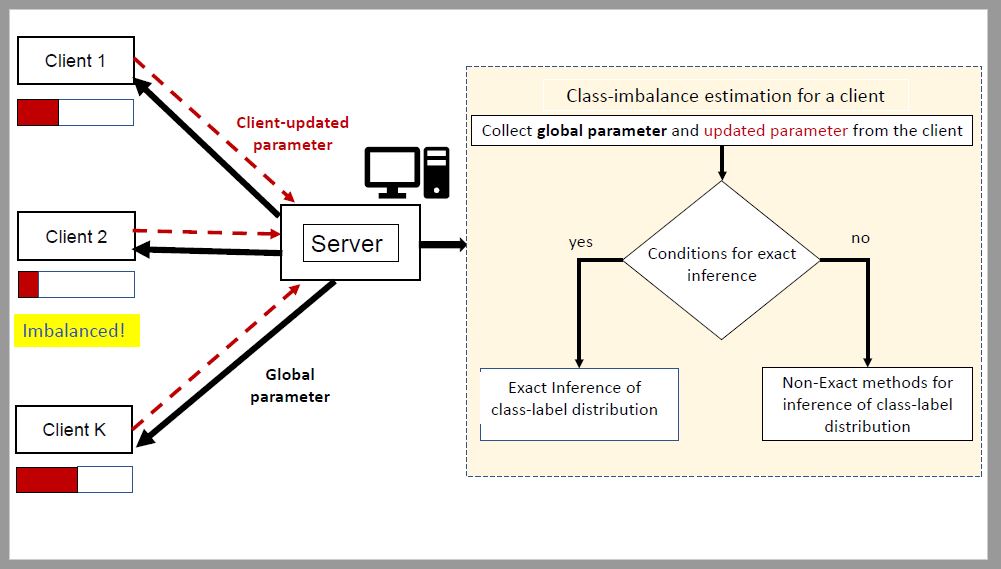Federated Learning (FL) has become a popular distributed learning method for training classifiers by using data that are private to individual clients. The clients´ data are typically assumed to be confidential, but their heterogeneity and potential class-imbalance are known to adversely impact the accuracy of the trained model.
During one of the TECoSA brainstorming sessions, industry partner, Atlas Copco outlined a use-case where their goal was to train a machine learning (ML) classifier to distinguish between anomalous and non-anomalous data in a federated manner since their clients typically want to keep their data confidential. Clearly, some of the clients could potentially have skewed class-label distribution in their training data, e.g. a client could have a large number of samples belonging to ‘non-anomalous’ class and very few samples belonging to the ‘anomalous’ class, and in this case the classifier cannot be trained well without making further adjustments to the training process.
The main difficulty in addressing the issue of class imbalance is that the class-imbalance pertaining to a client may not be common knowledge or may even be confidential information itself. Thus, the inference of the class-label distribution of the training data is important both from a performance and from a privacy perspective.

To address this issue, we proposed to perform class-label distribution inference at the server, to be used for detecting potential class-imbalance at the clients. The proposed solution for class label distribution inference is executed at the server, which serves as the orchestrator. The learning of classifier parameters starts with an initial choice of model parameters. The server sends these parameters to the clients to start their local training process. Clients update their respective parameters by executing the local training process based on their private training data. At the end of the local training process each client sends to the server its updated parameters.
The proposed solution uses the initial and the updated parameters for determining the class-label distribution for each client. It can compute the exact class-label distribution under certain conditions. If these conditions are not met then the proposed solution allows the server to estimate the class-label distribution using one of four proposed methods. We evaluated the proposed inference methods on four different datasets and our results show that they significantly outperform state of the art methods.
The methods are described and evaluated in [1], and a patent application has been filed by Atlas Copco for protecting them.
[1] Raksha Ramakrishna, György Dán, “Inferring Class-Label Distribution in Federated Learning,”
in Proc. of ACM Workshop on Artificial Intelligence and Security (AISec), Nov. 2022